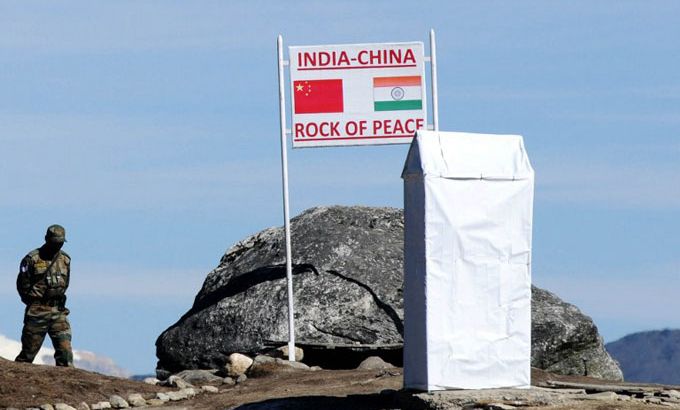New China passport stokes diplomatic ire
Travel documents show disputed territories as Chinese, angering Asian neighbours.

The Vietnamese government has said it will not stamp Chinese passports featuring a map that includes disputed islands in the South China Sea as Chinese territory, opting to issue visas on a separate piece of paper.
The head of the border guard command in the northern Vietnamese province of Quang Ninh said on Monday that guards had been instructed to issue visas stapled to Chinese people bearing such passports.
|
“Right now, until such time that there would be a change in policy, we will be accepting Chinese passports for visa application through the normal course of visa processing“ – Raul Hernandez, Philippines foreign ministry spokesperson |
The latest diplomatic tension followed a parallel action taken by India, which decided to issue Chinese citizens with visas embossed with New Delhi’s own maps.
In Vietnam, there is concern that by stamping visas in such passports, the government would be indirectly recognising Beijing’s claims to the disputed territory.
It is a delicate balance for Vietnam, as it is also seeking to boost its tourism industry. As of August, there were nearly 894,000 tourist arrivals from China, according to Vietnam’s statistics office, down almost ten per cent from the previous year.
According to The Economist, China is Vietnam’s largest trading partner. In 2011, trade between the two countries reached $36 billion.
While the two countries share cultural kinship, they have fought bloody wars over territorial disputes, including the Sino-Vietnamese War of 1979, in which thousands of fighters on both sides were killed.
Along with the Philippines, Malaysia and Brunei, Vietnam claims a group of islands in the South China Sea, which China also calls as its own.
The new Chinese passports shows those disputed islands as belonging to China.
‘Unacceptable’
Over in India, which shares a border longer than 4,000km with China, officials also reacted angrily to the new travel document.
External Affairs Minister Salman Khurshid said on Saturday that the Chinese passport map showing India’s Arunachal Pradesh state and the Himalayan region of Aksai Chin as part of China was “unacceptable’.’
In response, India started to issue visas to Chinese citizens with a map of India that includes all territories it claims.
In New Delhi, China is viewed with suspicion as a longtime ally of, and weapons supplier to, Pakistan – India’s bitter rival. For Beijing, the presence in India of the Tibetan spiritual leader, the Dalai Lama, and 120,000 other exiles from Tibet, remains a source of tension.
India says China controls 41,440 sq km of its territory in Aksai Chin in Kashmir, while Beijing claims that the Indian state of Arunachal Pradesh, which shares a 1,050km border with Tibet, is rightfully Chinese territory.
India and China fought a brief border war in 1962, and large stretches of the India-China border are still marked.
The territorial disputes remain unresolved, despite 15 rounds of talks – but relations have improved in recent years as China and India’s trade has grown, reaching more than $75bn in 2011.
However, the trade remains heavily skewed in favor of China, which is now India’s biggest trading partner.
Philippine protest
In the Philippines, the government is also protesting China’s new e-passports in a note sent to the Chinese embassy in Manila.
But Philippines foreign ministry spokesperson Raul Hernandez said authorities were still accepting the passports as official travel documents of Chinese citizens.
“Right now, until such time that there would be a change in policy, we will be accepting Chinese passports for visa application through the normal course of visa processing,” Hernandez said.
The Philippines is still mulling its next move, according to Al Jazeera’s Marga Ortigas.
“What we can say is we are considering different options as far as follow-up action. I don’t know what are those options,” Hernandez added.